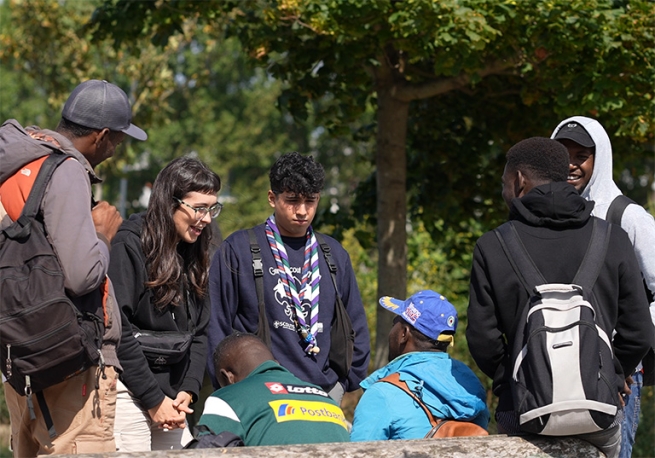Fr Jean-Marie Petitclerc, Salesian of Don Bosco and Coordinator of the Don Bosco Social Action network (DBAS), belonging to the France-Belgium South Province (FRB) says he is outraged by these comments. The Social Action branch of FRB's network of Salesian works manages a dozen reception centres for young unaccompanied minors, in the regions of Nouvelle Aquitaine, Normandy, Ile de France and Rhône-Alpes and from its privileged observatory Fr Petitclerc says:
"Within the child protection system, about a thousand adolescents have been entrusted to us and are supported by our educational teams. Each of these teenagers has their own personality. Let us remember that the term Unaccompanied Minor is only a legal category and that we must consider them to be first and foremost minors at risk whom our State, as a signatory to the International Convention on the Rights of the Child, has undertaken to protect (see article 20). Although they are very different from each other, what unites them is the will to invest in a project for the future, which unfortunately is not possible in their countries of origin due to wars or great economic precariousness.
To realise their life project, they took considerable risks. I am personally moved by the stories they tell us, often with great modesty, about their dead companions, their crossing the desert and the Mediterranean. And I am amazed at the efforts they make to successfully integrate into French society. Our educational teams support them in an educational project based, in the tradition of Don Bosco, on trust, hope and alliance.
Our teams are committed to restoring the fundamental rights of the adolescents entrusted to them:
– allowing them to regain their identity thanks to documents certifying it, insistently resorting to the authorities of the countries of origin or the French government in case of refusal of the latter (as in Mali);
– taking care of their physical and mental health through checks, vaccinations and the creation of health records;
– by including them in a schooling process: learning spoken and written French, personalised schooling based on the individual needs of each one;
– allowing them to obtain a professional qualification, often through alternating training in low-demand professions;
– working on their social integration, through meetings, membership in clubs and sports and cultural associations, and providing them with citizenship training;
– helping them find a suitable place to stay when they need to leave network homes.
The results in terms of integration are impressive. Among those who passed through and left the Salesian centres, 88% signed an employment contract. The efforts made to obtain a professional qualification are admirable and largely crowned with success. 80% of these young people also found a permanent housing solution.
For others, within the DBAS network, we have established the ARIA (Relational Accompaniment for the Inclusion of Young Adults) programme, supported by corporate donations, which allows them to continue support once they have been taken over by the Child Protection Agency.
We can see how, when these children receive educational support, they become a resource for our ageing society.
In 2023, we complained of fewer than 10 exclusions from the pathways due to delinquency (i.e. less than 1% of the young people in our care). It is therefore unbearable to insinuate that these unaccompanied minors endanger society with their delinquency!
May these few lines encourage readers, in the face of such insinuations, to be indignant, to use an expression by Stéphane Hessel!"
Source : Don Bosco Aujourd'hui


